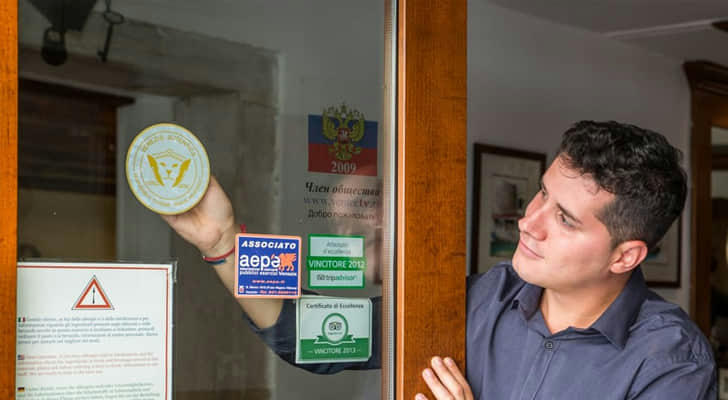Freelancer's Guide to Certifications: 7 Credentials That Can Double Your Hourly Rate
When Freelancing Becomes the New Normal: How to Stay Ahead
The number of freelancers worldwide has doubled in the past five years, but with opportunity comes fierce competition. One freelance copywriter watched her project rates drop from $50 to $30 per hour as AI tools flooded the market. Meanwhile, a data analyst quietly doubled his client base and raised his hourly rate from $60 to $150 after earning a specialized certification. These stories aren’t outliers—they reflect a growing reality: certifications are becoming the ultimate differentiator. Below are seven credentials proven to boost earning potential, backed by real-world results.

Seven Certifications That Turn Commodity Skills into Premium Services
1. Certified ROI Professional®: From Task Worker to Strategic Partner
A project management freelancer spent years stuck in repetitive gigs until she mastered ROI methodology. By creating visual reports showing clients exactly how her work translated to revenue—like helping a tech startup generate $3.20 for every $1 invested—she transformed into a strategic advisor. Her retention rate now exceeds 70%, with hourly rates jumping from $80 to $140.
2. AI Prompt Engineering: Standing Out in the Age of Automation
While most designers lowered prices amid Midjourney’s rise, one freelancer carved a niche by crafting brand-specific AI visual libraries. Instead of generic outputs, he designs custom prompts that align with client branding—a skill that keeps his rates at $90-$120/hour and client retention at 85%.
3. Google Data Analytics Certification: Turning Numbers into Narratives
A former accountant pivoted to freelancing with this certification, shifting from spreadsheets to storytelling. For a retail client, she uncovered a $120,000 annual overspend in warehouse logistics through data visualization. Her ability to turn raw numbers into actionable insights boosted her income by 120%.
4. Local SEO Specialization: Dominating Niche Markets
While others chased global SEO contracts, one freelancer focused on hyper-local optimization. By building “neighborhood keyword clusters” and optimizing Google Business Profiles for regional restaurants, he increased client foot traffic by 35%. His niche focus now commands rates triple the industry average.
5. RPA Developer Certification: Building Systems, Not Just Fixing Problems
An IT support freelancer escaped the hourly grind by automating workflows. After earning UiPath certification, he designed an automated expense reporting system that slashed processing time from 3 days to 20 minutes for small businesses. His project fees now start at $5,000, with recurring contracts from tech firms.
6. ISO 27701 Privacy Certification: Cashing In on Compliance
As data privacy laws tightened globally, a legal consultant specializing in GDPR compliance helped e-commerce clients avoid $150,000+ in potential fines annually. Her ISO 27701 credential positioned her as a go-to expert, with demand growing 45% year-over-year.
7. Remote Team Management Certification: Mastering the Async Workflow
A project manager certified by PMI redesigned collaboration systems for distributed teams. For a Silicon Valley startup, his time-zone optimization strategy cut product launch timelines by two months—a win that landed him ongoing contracts at $180/hour.

Three Rules for Smart Certification Investments
1. The Certification Pyramid: Build a Foundation, Then Specialize
Base Layer: Entry-level credentials for market access (e.g., AWS Cloud Practitioner)
Mid-Tier: Problem-solving certifications (e.g., automation, data security)
Peak: Rare, high-value specialties (e.g., blockchain smart contracts)
A developer’s journey illustrates this: Starting with Git certification ($45/hour), he added Kubernetes expertise ($120/hour), then blockchain development ($220/hour) over two years.
2. Leverage the Credential
Certifications gain value when paired with:
Industry reports (e.g., 2024 E-Commerce Compliance Trends)
Custom tools (e.g., data cleanup automation scripts)
Client education (e.g., “Avoiding Cross-Border Tax Pitfalls” guides)
A cybersecurity consultant combines CISSP certification with monthly threat briefings and workshops, achieving 90% client retention.
3. Avoid Certification Traps
Steer clear of:
Theory-Only Programs: No hands-on projects or real-world assessments
Obsolete Skills: Certifications for roles being automated (e.g., basic translation)
Shady Providers: Unaccredited “10-day expert” courses
One marketer learned this the hard way: Five social media certs kept him at $50/hour until he pivoted to behavioral analytics—tripling his income.

Turning Certifications into Higher Rates
1. Pricing Evolution: Charge for Value, Not Time
Tier 1: Hourly rates for standardized tasks (e.g., basic web design)
Tier 2: Percentage of client savings (e.g., 15% of $100,000 cost reduction)
Tier 3: Retainer models for ongoing needs (e.g., $20,000/year compliance audits)
A tax consultant transitioned from $80/hour to retainers by packaging risk mitigation as a subscription service.
2. Storytelling That Sells
Replace “I’m certified” with “This solves your problem”:
Before: “We handle data analysis”
After: “Our clients reduce operational waste by 22% through predictive analytics”
An automation freelancer’s proposal template states: “Businesses using our RPA solutions save $15,000+ annually on manual processes.”
3. Create a Certification Flywheel
Content Marketing: Share certification journey insights on LinkedIn
Free Tools: Offer certification-derived resources (e.g., SEO audit templates)
Authority Building: Host workshops with certification bodies
An SEO expert grew his business by 300% after launching a free “Local SEO Checklist” alongside Semrush certification announcements.

Final Word: Certifications Are Tools, Not Magic Bullets
Investing 300 hours and $2,000 in a certification won’t guarantee success—but it does signal commitment to solving real problems. As one freelancer put it: “The credential got me in the door, but the skills rebuilt my career.” In an era where AI handles routine tasks, the true value lies in combining certifications with strategic problem-solving. Those who master this balance don’t just survive the freelance economy—they thrive in it.
